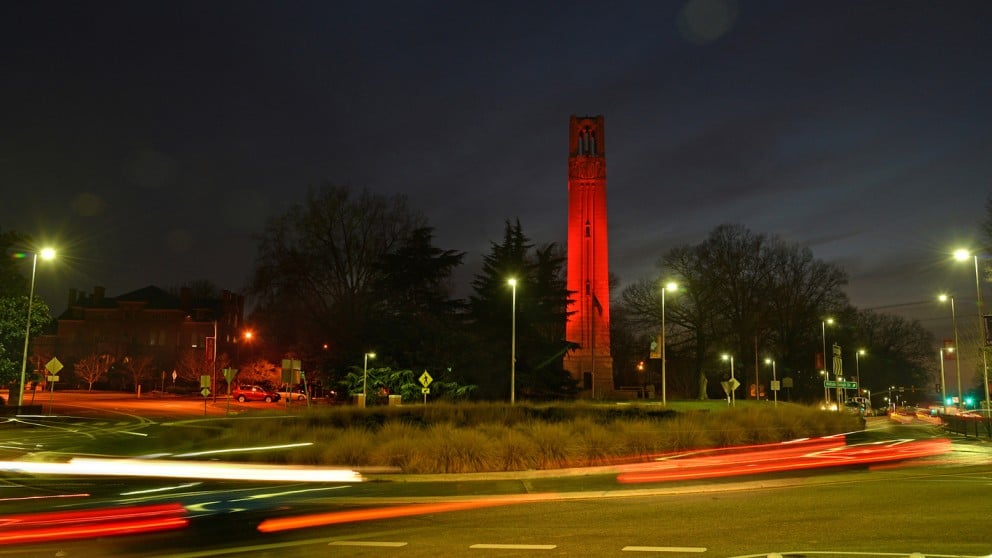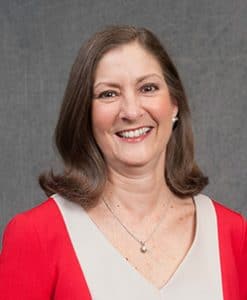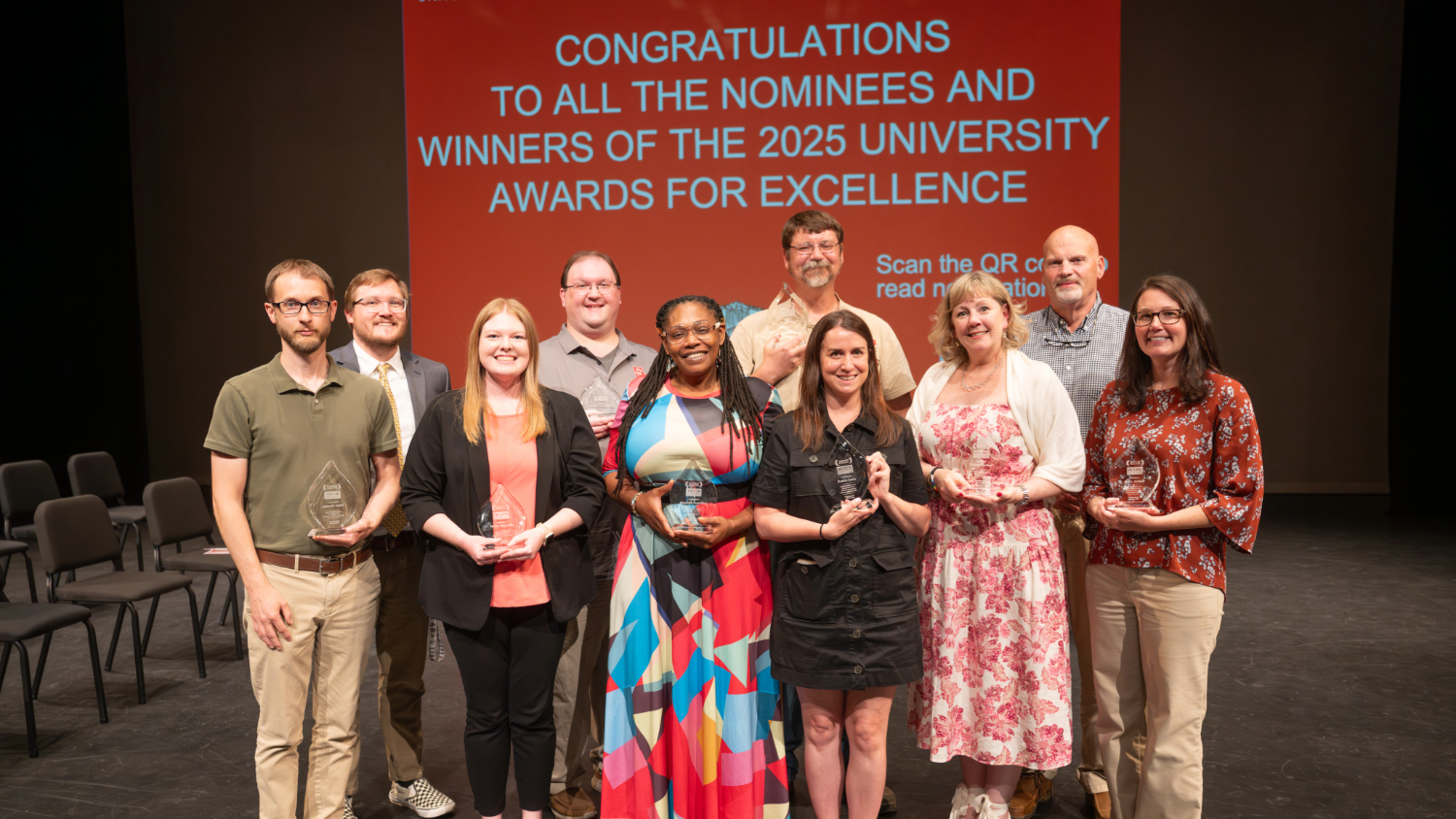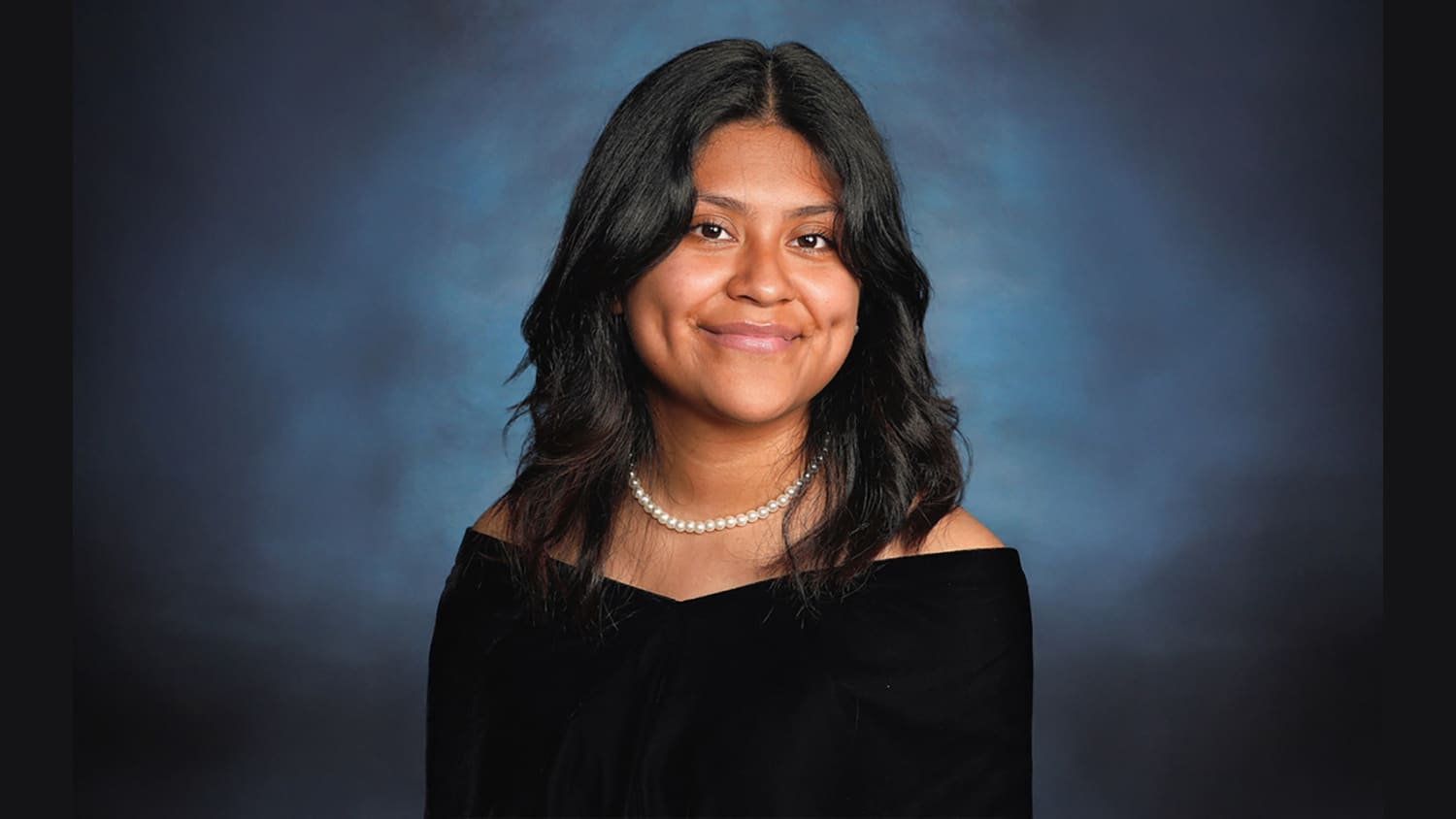Oliver-Hoyo Wins 2017 UNC Board of Governors Teaching Award

 Dr. Maria T. Oliver-Hoyo, Professor in the Department of Chemistry, is NC State’s 2017 winner of the UNC System Board of Governors Award for Excellence in Teaching. She joined the faculty of NC State in 1999. Honored in 2012 as a NC State Alumni Distinguished Undergraduate Professor, Dr. Oliver-Hoyo is passionate about understanding the processes of teaching and learning Chemistry and sharing that understanding with all of her students.
Dr. Maria T. Oliver-Hoyo, Professor in the Department of Chemistry, is NC State’s 2017 winner of the UNC System Board of Governors Award for Excellence in Teaching. She joined the faculty of NC State in 1999. Honored in 2012 as a NC State Alumni Distinguished Undergraduate Professor, Dr. Oliver-Hoyo is passionate about understanding the processes of teaching and learning Chemistry and sharing that understanding with all of her students.
In her teaching philosophy, Dr. Oliver-Hoyo states that she believes “students rise to the level they themselves realize they can reach and that all students deserve the best opportunities to learn.” This philosophy informs her development of classes whose primary goal is not about simply facilitating content but rather engendering positive attitudes in students that create environments conducive to improving the skills necessary for them to understand and master content. Dr. Christopher Gorman, Professor of Chemistry at NC State who has conducted numerous peer reviews of Dr. Oliver-Hoyo’s General Chemistry classes states that “I have come to understand her approaches to motivate students and to give them real pride in their scholarly performance.” Macelyn Batten, a former NC State student in Dr. Oliver-Hoyo’s Chemistry class writes that “Dr. Oliver always had her own way of captivating her student audience….and it was obvious that she was passionate about delivering the best possible education to her students….She became more than my teacher, she became my friend.”
Recognizing that large-scale classrooms have a direct impact on positive teacher/student interaction, Dr. Oliver-Hoyo used the existing SCALE-UP format (Student-Centered Activities for Large Enrollment Undergraduate Programs) in the College of Sciences to implement an activity-driven curriculum for General Chemistry. These hands-on, activity-rich and daily-life relevant activities have boosted student engagement, teacher/student interaction and enhanced student critical thinking skills in large-scale classes.
Dr. Laura Sremaniak, Teaching Professor and Associate Chair of the Department of Chemistry states that Dr. Oliver-Hoyo’s “classroom effectiveness is her scholarship in Chemistry Education” and further noted the “tremendous impact it has had, especially on students whose knowledge and skills in Chemistry are marginal and for students who are disabled.” Recognizing that ALL students deserve the opportunity to learn, Dr. Oliver-Hoyo developed a multi-sensory learning environment that allows visually impaired students as well as full-sighted students to use each sense to build a more complex experience of a concept. With the help of undergraduate and graduate students at NC State, Dr. Oliver-Hoyo developed a number of experiments that exploit the sense of smell and allow visually impaired students to enjoy a hands-on study of chemical phenomena. These experiments are now used in national camps for blind students in the United States. By undertaking this effort, Dr. Oliver-Hoyo effectively combined mentoring students to innovate and develop effective new teaching methods, while providing access to educational opportunities for students with disabilities for whom these learning opportunities were previously limited. Dr. Oliver-Hoyo’s generous grant from the National Science Foundation has allowed her to continue her quest to understand and develop the most effective ways to promote visualization skills that are so essential to Chemistry instruction. While developing accessible undergraduate Chemistry courses, Dr. Oliver-Hoyo directs a unique graduate program in Chemistry Education Research (CER) that targets the design, development and assessment resources for Chemistry instruction with major emphasis on accessibility.
In addition to teaching, mentoring and scholarship, Dr. Oliver-Hoyo’s professional service on campus includes participation in the Hispanic Faculty and Mentoring Program, the Women in Science and Engineering (WISE), the Science House Podcast Project- “Expanding Your Horizons,” and acting as liaison for Alliances for Graduate Education and the Professoriate (AGEP).
While her contributions to Chemistry Education at NC State demonstrate sustained excellence, Dr. Oliver-Hoyo is also known as a world leader and one of the leading authors in Chemistry Education research. She has maintained an impressive external funding record with continuing grants from the National Science Foundation. Dr. Gorman states that Dr. Oliver-Hoyo received “strong support from people in her field” which helped her “navigate the harsh peer review process and obtain reviews that have put her work in the very top tier now required for successful funding.”
Beyond the borders of NC State, Dr. Oliver-Hoyo’s professional contributions in her field include multiple leadership positions in the Division of Chemical Education of the American Chemical Society. In an effort to broaden the depth and breadth of Chemistry Education, Dr. Oliver-Hoyo participated in the Chem Ed Task Force on the Hiring and Promotion/Tenure of Faculty in Chemical Education (2005-2008) and the ACS Exam Committee for the Diagnostic of Undergraduate Chemical Knowledge Examination (2006-2012). She recently accepted an appointment to the Board of Publications of the Journal of Chemistry Education (2016-present). Dr. Oliver-Hoyo is also an active member of the American Chemical Society, National Science Teachers Association, Iota Sigma Phi – National Honor Society for Women in Chemistry, Sigma Xi and Alpha Chi Sigma.
Dr. Oliver-Hoyo earned her BS in Chemistry (1981) from the University of Puerto Rico in Rio Piedras, Puerto Rico, MS in Chemistry (1984) from Georgetown University and PhD in Chemistry (1999) from Drexel University.
At its September 1993 meeting, the Board of Governors adopted a report on Tenure and Teaching in the University of North Carolina. The report, prepared jointly by the Board’s Committee on Personnel and Tenure and its Committee on Educational Planning, Policies, and Programs, reaffirmed the Board’s insistence that teaching is the primary responsibility of each of the 17 constituent institutions of the University. To underscore the importance of teaching and to encourage, identify, recognize, reward, and support good teaching within the University, the Board adopted a set of six specific recommendations, including the following:
That the Board of Governors create annual systemwide teaching awards with monetary stipends which are designated “Board of Governors Awards for Excellence in Teaching.”
Each recipient is honored at their respective campus Spring commencement ceremony by a member of the Board of Governors and receives a $12,500 stipend and a bronze medallion.
(Reposted from UNC System website)
- Categories:


